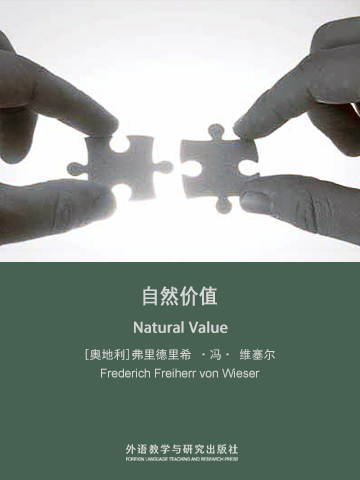“边际革命”是资产阶级经济学发展的一个重要里程碑。
The main purpose of Natural Value may be read in chap. vi. of Book II.. The general reader, however, will possibly find the most suggestive matter in chapters incidental to this main development, particularly in the attacks on Socialist theory. To English economists, again, I venture to think that there are three points which will specially commend themselves as original contributions to our science. These are, the re-setting of the elementary conception of value in Book I., the application to distribution in Books III. and IV., and the bringing of the law of cost of production within the compass of the general Marginal Law in Book V.. If an editor’s preface has any function it is, I imagine, to elucidate point which his, presumably, close study of the book have shown to be difficult, and my connection with the Austrian School may, perhaps, justify me in putting these points in my own way.
本书是维塞尔最重要的经济学著作,也是奥地利学派的理论代表作之一。其主要论题是“自然价值”,试图以此解决边际效应决定价值的理论所遇到的各种矛盾。作者还将此概念与边际分析方法应用于成本和分配方面,建立了“归属理论”和“成本定律”,从而完整化和系统化了奥地利学派的理论结构,也将主观价值理论大大推进了一步。维塞尔的这套理论,后来逐步发展成西方微观经济等理论基础之一。
Wieser is renowned for two main works, Natural Value, which carefully details the alternative-cost doctrine and the theory of imputation, and his Social Economics (1914). In Natural Value von Wieser introduced the theory of imputation and the alternative-cost doctrine, and is credited with the concepts that became known as marginal utility. The Opportunity Cost Theory is considered a valuable contribution from Weiser. His economic distinction between public goods and private goods is still used by economists as one of the main elements of the concept of marginal utility.
- Author's Preface
- Book 1 The Elementary Theory of Value
- Book 2 Exchange Value and Natural Value
- Book 3 The Natural Imputation of the Return from Production
- Book 4 The Natural Value of Land, Capital, and Labour
- Book 5 The Natural Cost Value of Products
- Book 6 Value in the Economy of the State
- 书评 写书评
- 笔记
-
书评加载中...























 京公网安备 11010802032529号
京公网安备 11010802032529号
笔记加载中...